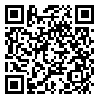Volume 6, Issue 2 (18 2006)
ijdld 2006, 6(2): 153-158 |
Back to browse issues page
Download citation:
BibTeX | RIS | EndNote | Medlars | ProCite | Reference Manager | RefWorks
Send citation to:



BibTeX | RIS | EndNote | Medlars | ProCite | Reference Manager | RefWorks
Send citation to:
Amini Moghadam S, Mohajeri Tehrani M R, Shaban Nejad-khas Z, Heshmat R, Aleyacine A, Larijani B. RELATION OF AMNIOTIC FLUID C-PEPTIDE AND INSULIN LEVEL AND NEONATAL MACROSOMIA. ijdld 2006; 6 (2) :153-158
URL: http://ijdld.tums.ac.ir/article-1-326-en.html
URL: http://ijdld.tums.ac.ir/article-1-326-en.html
Soheila Amini Moghadam 
 , Mohammad Reza Mohajeri Tehrani
, Mohammad Reza Mohajeri Tehrani 
 , Zahra Shaban Nejad-khas
, Zahra Shaban Nejad-khas 
 , Ramin Heshmat
, Ramin Heshmat 
 , Ashraf Aleyacine
, Ashraf Aleyacine 
 , Bagher Larijani *
, Bagher Larijani * 
 1
1

 , Mohammad Reza Mohajeri Tehrani
, Mohammad Reza Mohajeri Tehrani 
 , Zahra Shaban Nejad-khas
, Zahra Shaban Nejad-khas 
 , Ramin Heshmat
, Ramin Heshmat 
 , Ashraf Aleyacine
, Ashraf Aleyacine 
 , Bagher Larijani *
, Bagher Larijani * 
 1
1
Abstract: (9378 Views)
Background: Fetal hyperinsulinemia correlated with large birth weight and impaired glucose tolerance test and obesity in second decades of life. In this study we compared the correlation between fetal insulin production (as estimated by amniotic fluid (AF) C-peptide concentration) and AF insulin with macrosomia (as estimated by neonatal birth weight 4000 gr).
Methods: Thirty eight neonates were studied. Ten infants were macrosom and 28 were normal (birth weight < 4000 gr). Amniontic fluid C-peptide and insulin concentration and mother and fetal blood C-peptide and insulin were measured during delivery with radioimmunoassay and mother and fetal glucose were measured at the same time and correlated with neonatal macrosomia within first hour of birth.
Results: There was a significant correlation between infant serum C-peptide level and macrosomia. Amniotic fluid insulin level was higher in the macrosom infants but this correlation was not significant. AF C-peptide was higher in the macrosom group. Also there was a significant correlation between maternal serum C-peptide and macrosomia. Infant and mother serum insulin was higher in the macrosom group.
Conclusion: Our results suggest that fetal insulin (as estimated by AF C- peptide) and mother insulin and C- peptide production, can influence fetal weight and induce fetal macrosomia.
Methods: Thirty eight neonates were studied. Ten infants were macrosom and 28 were normal (birth weight < 4000 gr). Amniontic fluid C-peptide and insulin concentration and mother and fetal blood C-peptide and insulin were measured during delivery with radioimmunoassay and mother and fetal glucose were measured at the same time and correlated with neonatal macrosomia within first hour of birth.
Results: There was a significant correlation between infant serum C-peptide level and macrosomia. Amniotic fluid insulin level was higher in the macrosom infants but this correlation was not significant. AF C-peptide was higher in the macrosom group. Also there was a significant correlation between maternal serum C-peptide and macrosomia. Infant and mother serum insulin was higher in the macrosom group.
Conclusion: Our results suggest that fetal insulin (as estimated by AF C- peptide) and mother insulin and C- peptide production, can influence fetal weight and induce fetal macrosomia.
Type of Study: Research |
Subject:
General
Received: 2006/09/3 | Accepted: 2007/02/4 | Published: 2013/10/14
Received: 2006/09/3 | Accepted: 2007/02/4 | Published: 2013/10/14
| Rights and permissions | |
 |
This work is licensed under a Creative Commons Attribution-NonCommercial 4.0 International License. |



